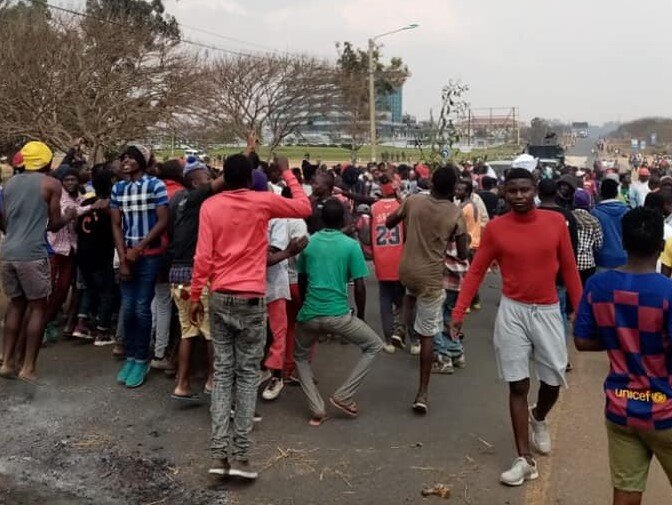
It has emerged that businesspeople who lost their businesses in Mzuzu during the spate of ‘anti-Jane Ansah’ demonstrations in 2019 are struggling to revive their businesses.
Speaking in an interview, Saturday, Joyce Gondwe who had her shop looted in Vigwagwa market, confided in this reporter that the scenario resulted into financial lending institutions confiscating her property in Zolozolo after her business couldn’t support her in the repayment of loans. Gondwe said 2019 is the year she got ruined beyond revival.
“I had loans with some financial lending institutions. They supported my business, and some personal developments at home,” she said.
“After irate demonstrators looted my shop, I lost everything. I’m now homeless. I lost my house in Zolozolo and two plots in Sonda to lending institutions after my business couldn’t afford to support me.”
Fenson Ngwira share similar lamentations. He is equally failing to get back on his feet, business wise, after losing his shop to demonstrators who had gone rowdy in 2019 across the city.
“I’m now very poor. With the tough economic situation currently rocking our economy, it’s even worse,” he complained.
In 2019, some civil society organisations organised massive demonstrations across the country that aimed at forcing the then Chairperson of the Malawi Electoral Commission (MEC), Jane Ansah, to resign over accusations of electoral fraud and irregularities.
In Mzuzu, some protesters went on rampage, looting from shops, smashing cars and torching houses in expression of rage, bitterness and disgust for Dr. Ansah.
Most people who were suspected of being linked to Democratic Progressive Party (DPP) which was ruling then, were targeted, and had their business entities looted.
“My taxi was torched in Mchengautuwa. I’d invested in it. After losing it, I’m no longer financially stable. I can’t buy another car soon,” said George Mwale, resident of Mzilawayingwe.
He added: “I’m now surviving through touting minibuses and other people’s taxis here at the rank. It’s a nightmare.”
Mwale tried to get a loan from the National Economic Empowerment Fund (NEEF) with the belief that it could have helped him to have his business revived, but, as he puts it, it only pushed him into more trouble.
“I’m yet to settle the loan, and members of my group are threatening that they may soon resort to selling some of my properties, including a plot of my brother who is in Tanzania, which I had registered as collateral.”
This revelation comes ahead of the memorial ceremony for 20 people who were brutally murdered by some police officers who shot them during anti-government demonstrations on 20 July 2011 in Mzuzu.
Our investigations have established that families of the deceased victims are, just like the business people in the city who lost their businesses during demos, struggling to get along.
Meanwhile, social commentator, John Nkhata of Mzuzu University, has encouraged people in the country to desist from expressing their anger and disappointments in government through demonstrations, citing that they have proven to be doing more harm than good to the society.
He suggested dialogue to be the best way of solving misunderstandings among people.
Follow us on Twitter:














